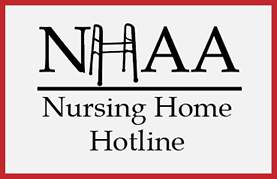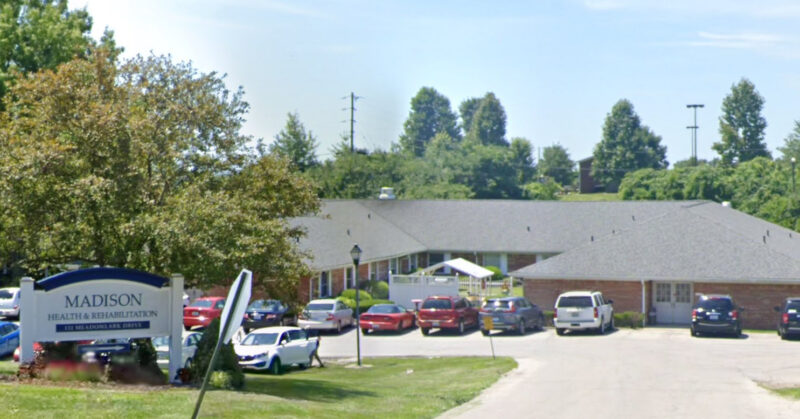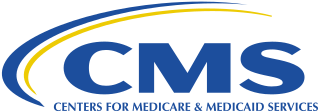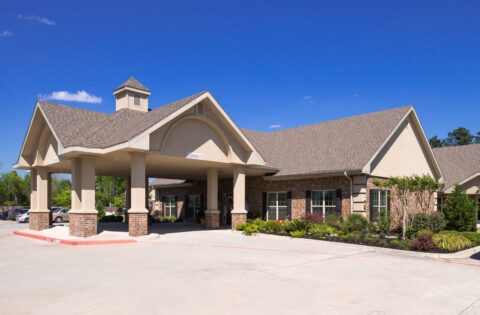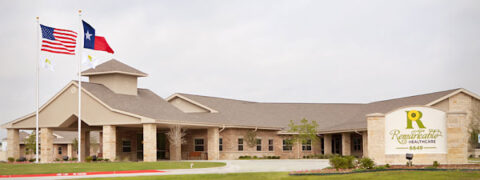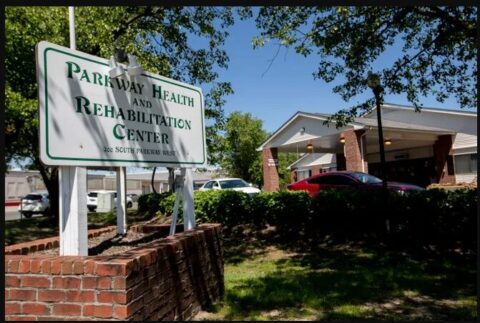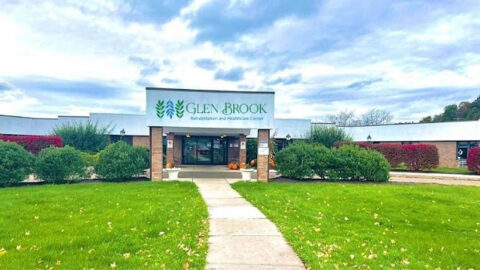State Findings:
Based on observation, interview, record review, and review of the facility’s policy, it was determined the facility failed to have an effective system in place to review and update comprehensive care plans as indicated for one (1) of thirty-four (34) sampled residents (Resident #15).
Resident #15’s care plan was not revised to included increased supervision and monitoring after a change in cognition, resulting in a fall with significant injury.
The findings include:
Review of the facility’s policy titled, Comprehensive Care Plans Standard of Practice, dated 10/2020, revealed the purpose of the policy was to ensure an individualized Comprehensive Care Plan (CCP) that included measurable objectives and timetables to meet the resident’s medical, nursing, mental and psychosocial needs would be developed for each resident. Further review revealed the facility’s care planning/Interdisciplinary Team (IDT), in coordination with the resident, family and/or representative, developed and maintained a CCP for each resident that identified the highest level of functioning the resident might be expected to attain. Continued review revealed that a CCP was based on a thorough assessment that included, but was not limited to, the Minimum Data Set (MDS) assessments.
Additional review revealed each resident’s care plan was designed to identify problem areas; incorporate risk factors associated with the problems, built on the resident’s strengths; and reflected the resident’s wishes regarding treatment goals, timetables, and outcomes. Per the policy, a resident’s care plan identified the professional services responsible for each element of care and should aid in preventing or reducing declines in the resident’s functional status and/or functional levels. Further review revealed resident assessments were ongoing and care plans were revised as information about the resident and the resident’s condition
changed. Per the policy, care plans were reviewed and updated when there was a significant change in the resident’s condition, when the desired outcome was not met, when the resident had been readmitted to the facility from a hospital stay, and at least quarterly.
Review of the facility’s policy, Falls Standard of Practice, dated 07/2020, revealed a resident’s care plan was to be updated with implemented interventions after a fall. Additional review revealed the Clinical Quality Assurance (QA) Interdisciplinary Team (IDT) would review and discuss any fall during the morning clinical meeting with the care plan updated to reflect any changes to risk factors or needed interventions.
The facility’s policy for Interdisciplinary Team (IDT) was requested and was not provided. The Director of Nursing (DON) furnished a written list of the IDT Members which included the Administrator, the Director of Nursing (DON), the Assistant Director of Nursing (ADON), the Unit Manager (UM), the Wound Nurse, the Minimum Data Set Nurse (MDS), the Staff Development Coordinator (SDC), the Director of Rehabilitation Services and the Social Services Director (SSD).
Review of Resident #15’s medical record revealed the facility admitted the resident, on 02/20/2020, with diagnoses which included Chronic Obstructive Pulmonary Disease (COPD), Oxygen Dependence, Congestive Heart Failure (CHF), and Obstructive Sleep Apnea.
Review of Resident #15’s Quarterly Minimum Data Set (MDS) Assessment, dated 08/15/2022, revealed the facility assessed the resident to have a Brief Interview for Mental Status (BIMS) score of fourteen (14) of fifteen (15), which indicated he/she was cognitively intact.
Review of Resident #15’s Progress Notes, dated 08/09/2022 and 08/11/2022, revealed the facility assessed Resident #15 as having confusion on 08/09/2022, and again on 08/11/2022, when staff notified the physician, who ordered laboratory tests. Further review revealed on 08/22/2022, the resident was very confused and disoriented, hallucinated, and attempted to climb out of bed.
Further review of Resident #15’s Progress Notes, revealed on 08/27/2022 at 2:57 AM, Resident #15 called out for help and was found sitting on his/her bottom with his/her back resting against the bed. Resident #15 was transferred to a local hospital Emergency Department (ED) for evaluation related to the fall and decline in his/her level of consciousness.
Review of the IDT Note, dated 08/29/2022 at 10:46 AM, revealed Resident #15 had been admitted to the hospital because of his/her critical CO2 (carbon dioxide) level. Review of the
Progress Notes revealed on 09/05/2022, the resident was diagnosed with a broken right tibia (leg) from the previous fall found after completing a Computed Tomography (CT) scan and X-ray. Review of the Progress Notes revealed Resident #15 returned to the facility on [DATE] after hospital care.
Review of Resident #15’s Comprehensive Care Plan (CCP) revealed a fall care plan initiated on 03/05/2020.
Further review revealed the contributing problem was risk for injury as evidenced by need for assistance with Activities of Daily Living (ADL) related to COPD, CHF, morbid obesity, Hypertension, incontinence, and medications. Continued review revealed the interventions initiated on 03/05/2020 included a bariatric bed with the assistance of two (2) staff and use of a mechanical lift, medications/treatments and laboratory tests as ordered, monitor for side effects, and Physical Therapy evaluation/treatment as indicated. An additional intervention was added on 03/23/2020, which was half side rails times two (2) to aid with bed mobility. With additional review, no other interventions were noted.
Continued review of Resident #15’s CCP revealed a plan for Cognitive Loss, dated 03/03/2020 revealed interventions to include: 1) approach resident warmly and positively, explain all procedures to resident before doing care, etc.; 2) attempt to establish a comfortable daily routine; 3) elicit support of family/friends as needed to assist resident with more difficult or complex decisions; 4) encourage resident to reminisce to help keep long term memory intact; 5) notify physician, family, responsible party of changes as needed; and 6) provide cueing, prompting, and assist for personal care as needed. Further review of the cognitive loss care plan revealed no revisions and no added interventions for increased monitoring following new onset confusion.
In a telephone interview with Resident #15’s Daughter on 06/29/2023 at 12:10 PM, she stated Resident #15 was normally alert and oriented, but had asked the facility about placing a bed alarm because the resident became confused if his/her O2 was too low. She also stated a bed alarm would alert the staff if Resident #15 was attempting to get out of bed unassisted and that, if an alarm was not possible, the facility should put someone in the room with him/her until the resident was no longer confused. She further stated she was not aware of any fall prevention strategies the facility had attempted.
In an interview with State Registered Nursing Assistant (SRNA) #7 on 06/30/2023 at 4:10 PM, she stated Resident #15 was disoriented the day he/she fell out of bed. She stated Resident #15’s confusion seemed intermittent; specifically, he/she would be speaking normally then say something off the wall. She also stated the disorientation was not Resident #15’s baseline and was a new onset problem before the fall on 08/27/2022.
In an interview with the MDS Nurse on 07/01/2023 at 5:43 PM, she stated she did not do cognitive care plans, and this would fall into the responsibility of the Social Services Director (SSD).
In an interview with the SSD on 07/01/2023 at 6:22 PM, she stated upon notification of a resident having cognitive changes, she was responsible for care planning and revising the care plan. She stated with cognitive changes, there would be increased supervision, the care plan would be updated accordingly, and documented in a Progress Note. The SSD stated she slightly remembered Resident #15’s incident. She stated the resident was confused, and this was not normal for Resident #15. The SSD stated as she remembered, Resident #15 was confused and was trying to get out of the bed when he/she had the fall.
However, review of the current CCP for Resident #15 revealed no documented evidence it had been revised to include interventions for increased supervision after the onset of cognitive changes on 08/22/2022.
In an interview with the Director of Nursing (DON) on 07/01/2023 at 5:51 PM, he stated, after a change in condition, the nurse would notify the physician, increase monitoring, as evidenced by charting on every shift for seventy-two (72) hours. He stated this was just the standard of practice for nursing. The DON stated his expectation was for staff to carry out the best nursing practice. He further stated increased monitoring, by every fifteen (15) minutes or every thirty (30) minute checks, was an intervention which required a Physician’s Order and should be on the care plan. He stated his expectation for a resident’s change in condition was to notify the physician, the resident’s family, carry out any new orders, and increase monitoring for seventy-two (72) hours, documented with a progress note on every shift.
During an interview with the Administrator on 07/01/2023 at 6:40 PM, with the [NAME] President of Operations in attendance per the Administrator’s permission, she stated she was not the Administrator at the time of Resident #15’s fall and did not have a clinical background. But in this type of situation, she stated she would expect the staff to notify the physician and act on the physician’s orders. She stated if it was not noted in a care plan, a nurse caring for a resident in this situation would learn in report of any changes in condition and the need for increased monitoring.
Your Experience Matters
...and we want to hear it.
NHAA is here to assist families, residents, and the community by sounding the alarm on issues like those found above. This nursing home and many others across the country are cited for abuse and neglect.
If you have or had a loved one living in this nursing home or any other nursing home where you suspect any form of abuse or neglect, contact us immediately.
We have helped many already and we can help you and your loved one as well by filing a state complaint, hiring a specialized nursing home attorney or helping you find a more suitable location for your loved one.
You can make a difference, even if your loved one has already passed away.
Please give us a call at 1-800-645-5262 or fill out our form detailing your experience.
Personal Note from NHA-Advocates
NHAA shares with all the families of loved ones who are confined to nursing homes the pain and anguish of putting them in the care of someone else. We expect our loved ones to be treated with dignity and honor in the homes we place them. We cannot emphasize enough to family members of nursing home residents; frequent visits are essential to our loved ones’ well-being and safety.
If you are struggling and upset, click here to understand your options, or contact us through our contact form or call our toll free hot line number: 1-800-645-5262.
